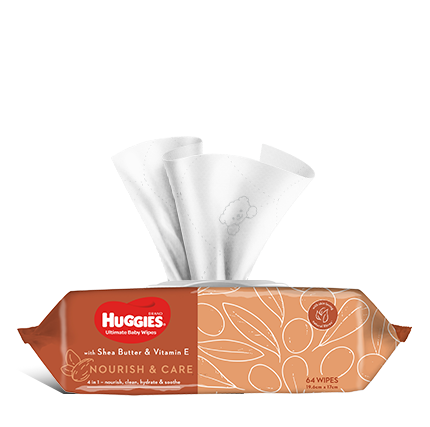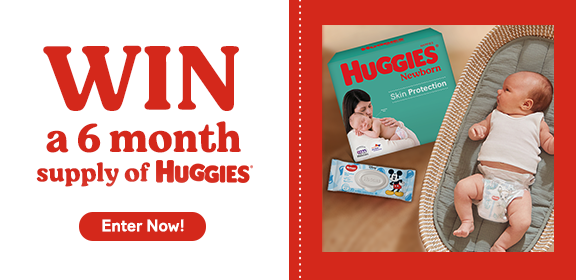The positive side to your baby teething is they will be able to chomp on real foods soon! It won’t be hard for you to tell when they do start teething. This is the downside, as even though they cannot talk yet, they will be sure to let you know through their symptoms - which can be unpleasant.
It's important to recognise the signs of teething and when their behaviour may be due to something else, like an illness.
Your baby’s primary teeth will start to come through from around 9 months of age, starting with the lower front teeth. Timing can vary between children and range from 3-12 months.
Every child is an individual and just as there’s variation in all developmental milestones, teething is no different.
What are some teething symptoms in babies?
Monique Christidis is a child health nurse and founder of Baa Baa Parenting Solutions. She explains these are common symptoms that your baby may display when they’re teething:
-
Grizzly and whingy
Teething can cause some discomfort in babies.
-
Biting down hard on anything
This gives relief from the pain
-
Red rosy cheeks
Sometimes the skin can look dry and inflamed
-
Increase in saliva and drooling
The Childrens Hospital Los Angeles notes that excessive drooling can lead to what’s called a teething rash, around the mouth, cheeks, chin, and neck area from the extra bacteria on the skin from the saliva.
-
More frequent poos
It’s not uncommon for babies to have more dirty nappies, more often, when teething
-
Swollen, red gums
You may or may not feel a hard lump under the gum
-
Preference for cold, smooth foods
Foods like yoghurt, custard, cold purees and wanting more frequent breast or bottle feeds.
-
Cold-like symptoms
This can include runny nose and fever. The Childrens Hospital Los Angeles explains that babies start teething at around the same time when their own immune system is still maturing and there is a decline in the immunity they built up during pregnancy. This is the age when infants can become susceptible to minor infections. Because these two changes are happening at the same time, the symptoms of teething and a cold can be confused with each other.
The Childrens Hospital Los Angeles also note the following symptoms are possible:
-
Coughing
The extra saliva produced during teething can cause an occasional cough. However, the Childrens Hospital Los Angeles advises that if the cough continues or is accompanied by a high fever and cold or flu symptoms, to contact a doctor, as this combination of symptoms means your baby is sick.
-
Low Grade Fever
Children who are teething may have a fever up to 38° C. However, a temperature greater than 38° C should not be considered as being due to teething and is more likely due to an infection. Panadol and/or ibuprofen can be given in the recommended dose. Speak with a doctor or pharmacist if you’re unsure about how much to give.
-
Cheek rubbing and ear pulling
Babies will do these things, because pain in the gums can travel to the cheek and ear, especially when the molars are erupting. However, ear pulling or rubbing can also be a sign of an ear infection, so Childrens Hospital Los Angeles advises to contact the doctor if this continues, or they also have a high fever. Try massaging the gums with a clean finger for one to two minutes to help with the discomfort.
-
Breastfeeding
If you are breastfeeding, your baby might bite either at the beginning or end of the feed if they are teething and have sore gums.
The Australian Breastfeeding Association provide some suggestions for this. You may want to consider offering your baby some pain relieving medication. You could also give your baby something hard and cold to chew on before a feed. You could rub your baby's gums before a feed, for example with an ice-cube wrapped in a soft cloth, so they are less inclined to chew on your breast. If your baby is in a lot of pain, they may not want to feed as frequently.
When should babies start eating solid foods?
At around 6 months of age, but not before 4 months, most babies are ready to start eating solid foods.
Christidis says they may display a refusal of solid food or turning their head away when you try and offer them a spoon, as this could hurt their gums.
NCT is a UK national charity for pregnancy, birth, and early parenthood. They advise a baby’s appetite for solids may be reduced for the five days leading up to their teeth coming out, the day it pops out and for three days afterwards. Their appetite for foods should return in just over a week. If not, it would be ideal to see a Child Health Nurse or GP.
Abnormal symptoms during teething
Midwife Cath explains in her book, After The First Six Weeks, that your baby shouldn’t be experiencing the following with teething:
- Fever
- Vomiting
- Diarrhoea
- Rash all over the body.
See a doctor if your baby has any of these symptoms.
It’s important to remember that some symptoms may seem like teething symptoms, but may not be. They could be related to illness and it’s important for your baby to see a doctor if you are worried or if there are changes in their feeding, sleep and general behaviour.
Written by Tracey Cheung, April 2023. Tracey is a freelance writer who specialises in creating health and wellness content for the community, drawing on her experience as a mother.
Reviewed by Jane Barry, Midwife and Child Health Nurse, January 2024.
References


Last Published* June, 2024
*Please note that the published date may not be the same as the date that the content was created and that information above may have changed since.

















